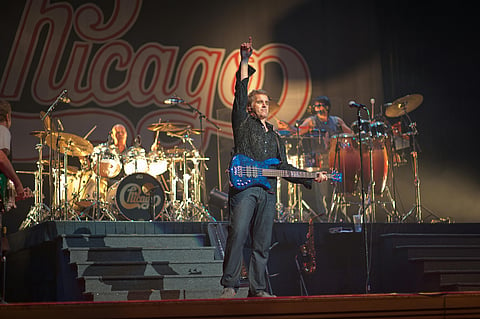How Can Modular Stages Enhance Event Flexibility?
When it comes to organizing events, flexibility is vital. Whether you're planning a corporate conference, a music festival, or a wedding reception, adapting and customizing the event space is essential, and this is where modular stages come into play. This blog post will explore how modular stages can enhance event flexibility and make any occasion remarkable.
1. Understanding Modular Stages
Modular stages are versatile platforms designed for easy assembly and customization. They consist of interlocking components that allow event planners to create a stage of any size and shape within a given space. These stages are not fixed structures but relatively flexible systems. You can adjust them according to the specific requirements of each event.
2. Customizability for Different Event Types
A significant advantage of some of the best modular stages is their ability to cater to different events. Their adaptable design can quickly transform into various setups, such as fashion runways, speaker platforms, performance stages, exhibition spaces, or even elevated seating areas for spectators.
3. Easy Assembly and Disassembly
Traditional stages often require time-consuming setup processes that involve heavy equipment and specialized personnel. Alternatively, modular stages simplify the installation process by offering quick assembly times and user-friendly designs suitable for everyone involved in stage setup — from professional technicians to amateurs at DIY events.
4. Freedom in Adjusting Stage Size
Whether your event is an intimate gathering or a large celebration with thousands of attendees, modular stages can adjust the stage size accordingly. By adding or removing stage components as needed, it becomes effortless to create an appropriate-sized platform that enhances audience visibility and engagement while maximizing available space.
5. Creative Possibilities with Variable Heights
Another feature that separates modular stages from traditional ones is their adjustable height capability. This feature enables organizers to go beyond simply raising or lowering an entire stage platform; they can now vary different stage sections to create visually captivating, multi-level setups. From catwalk-style runways to tiered seating arrangements, the possibilities for creative expression become endless.
6. Ease of Integration with Other Structures
In an event setting, stages often must coexist with structures such as lighting gantries, sound systems, and LED screens. Modular stages offer seamless integration possibilities by providing built-in systems that effortlessly accommodate these supporting structures, allowing event planners to incorporate various technical elements seamlessly and create a cohesive visual experience for the audience.
7. Versatility in Venue Adaptation
Specific venues or locations do not restrict modular stages. Thanks to their adaptability, they can be installed indoors or outdoors efficiently and effectively, opening up opportunities for event organizers who often face venue constraints when planning events in unique or unconventional spaces.
8. Simplicity in Transportation and Storage
Due to their cumbersome nature, traditional stage setups usually require large trucks for transportation. In contrast, modular stages reduce logistical challenges by designing the components into smaller, manageable pieces that can easily fit into regular-sized vehicles or storage spaces when not in use.
9. Durability and Safety Features
Modular stages are not just about flexibility; they can withstand demanding event environments. These stages feature durable materials and construction techniques that ensure stability and safety for performers, speakers, and attendees. Furthermore, modular stages often come with safety elements such as non-slip surfaces and sturdy railings, promoting a secure event experience.
10. Cost-Effectiveness and Waste Reduction
Event planners are always conscious of budget constraints. Modular stages offer a cost-effective solution since they eliminate the need for recurring stage rental fees by providing a reusable platform at hand whenever required. Additionally, modular stages reduce waste compared to traditional stages, as they can be easily disassembled and reused instead of discarded after a single use.
11. Adaptability for Changing Event Requirements
Event requirements can change unexpectedly. Modular stages allow organizers to efficiently adapt to these changes by providing agile solutions. Whether you need additional space for an unexpected crowd or you need to modify entertainment placement during an event, you can adjust modular stages accordingly without disrupting the overall flow and experience.
Conclusion:
The versatility provided by modular stages is revolutionizing event planning. Incorporating these flexible platforms into your events allows you to customize event spaces according to changing needs while enhancing the attendee experience through imaginative setups and designs. So why limit yourself? Embrace modular stages and add a touch of innovation and flexibility to all future events, from intimate gatherings to grand celebrations.
Inspired by what you read?
Get more stories like this—plus exclusive guides and resident recommendations—delivered to your inbox. Subscribe to our exclusive newsletter
Resident may include affiliate links or sponsored content in our features. These partnerships support our publication and allow us to continue sharing stories and recommendations with our readers.

